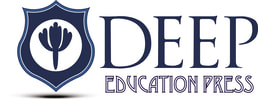Table of Contents
|
Inclusive Education through Shared Education
Joanne Deppeler, Monash University, Australia & Danielle Zay, University of Charles de Gaulle Lille 3, France Chapter 1 : Inclusive Education and Social Change Danielle Zay, University of Charles de Gaulle Lille 3, France. Chapter 2 : Pathways for Inclusion beyond the School Walls: A Transformative Case of Using Inclusive Education to Enhance Social Inclusion in Spain Lena De Botton, University of Barcelona, Spain; Ramón Flecha, University of Barcelona, Spain; Rocío García-Carrión, University of Cambridge, UK; Silvia Molina, University of Rovira & Virgili. Tarragona, Spain. |
Chapter 3 : Equity and Quality: Inclusive education in Australia for Students with Disabilities
Joanne Deppeler, Monash University, Victoria, Australia; Chris Forlin, Hong Kong Institute of Education, Hong Kong; Dianne Chambers, University of Notre Dame, Western Australia Tim Loreman, Concordia University, Edmonton, Canada; Umesh Sharma, Monash University, Victoria, Australia Chapter 4 : Inclusion of Students with Hearing Impairments in the Foreign Language Classroom: Insider Stories Yi-Hung Liao, Wenzao Ursuline University of Languages, Taïwan; Francois Victor Tochon, University of Wisconsin-Madison, USA |
Chapter 5 : Assessment Practices of School Speech Therapists Working with Cultural Minority Students: Differentiation, Standardization and Normalization
Corina Borri-Anadon, Université du Québec à Trois-Rivières, Canada; Lorraine Savoie-Zajc, Université du Québec en Outaouais, Canada; Monique Lebrun, Université du Québec à Montréal, Canada. Chapter 6 : The Children in Specialised Classes in Primary School, between Integration and Inclusion Claire de Saint Martin, Ph.D, University of Cergy Pontoise, France. |
|
|
|




